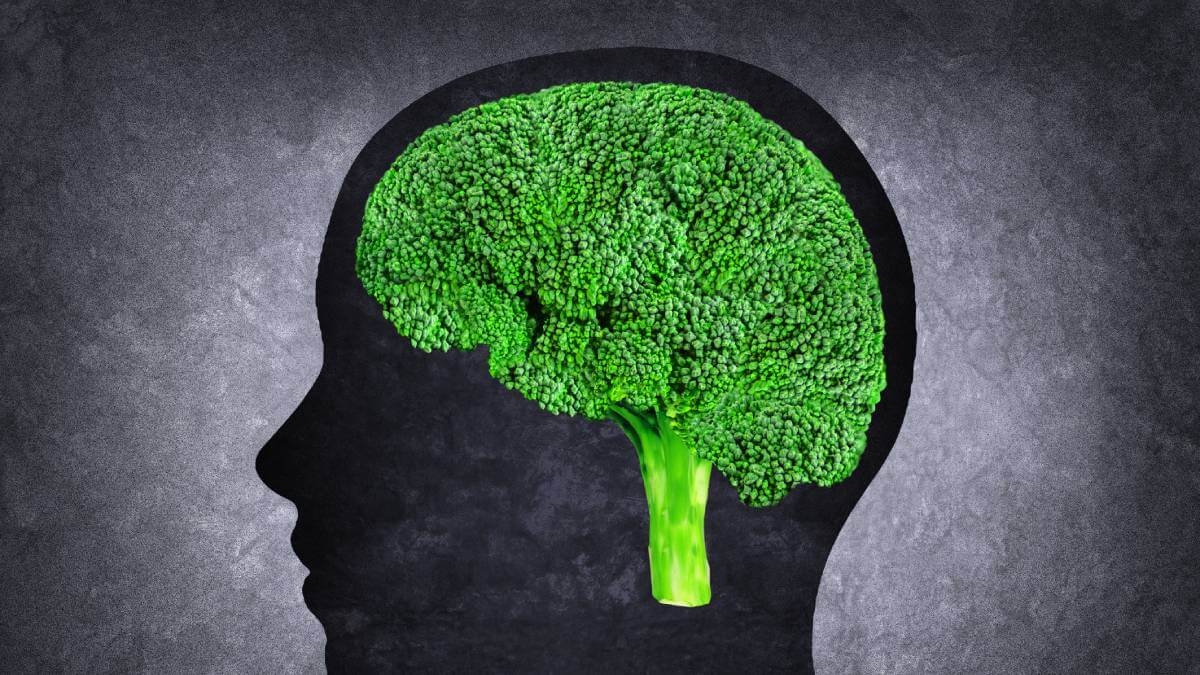How often do you sit down in front of a meal and think, ‘Wow, this is going to be great for my brain?’ And I don’t mean great in the way that it will light up your pleasure centres like a Christmas tree. I mean it in the way that it will nourish your brain with the nutrients it needs.
Certain foods are particularly rich in healthy components such as omega-3 fatty acids, B vitamins and antioxidants, which are known to support brain health and are often referred to as brain foods.
Of course, there is no single supreme brain food that ensures no cognitive decline if you eat it every day, but there are steps you can take to keep your brain sharp as you age.
Research shows that the best brain foods are the same ones that protect your heart and blood vessels, so they’re good all round.
Lisa Mosconi, PhD, neuroscientist and author of Brain Food: The Surprising Science of Eating for Cognitive Power, is dedicated to studying the blood-brain barrier, which determines which nutrients can – and cannot – make their way into the brain. “There are gates in the brain that open and close depending on whether the brain is ‘hungry’. No other organs in the body have the same strict rules,” she told Well+Good. Of all the foods she has researched, these stand out as absolutely essential for brain health.
Fatty fish for omega-3 fatty acid
“I recommend cold water, fatty fish, especially Alaskan salmon, mackerel, blue fish, sardines, or anchovies,” says Dr Mosconi. “These are all very high in the omega-3s that your brain needs on a daily basis.”
Omega-3 fatty acids are a form of polyunsaturated fat (aka the ‘good’ kind of fat) that help shape cognitive capacity. They’re high in eicosapentaenoic acid (EPA) and docosahexaenoic acid (DHA), which help support cognitive function, maintain the fluidity of cell membranes and increase synaptic plasticity.
One particular study found DHA was associated with better non-verbal reasoning, mental flexibility, working memory and vocabulary.
For those on a plant-based diet, marine algae and seaweed, walnuts, almonds, chia seeds, hemp seeds, and flaxseeds are all good sources of omega-3.
Leafy greens for vitamin E
“Dark leafy greens such as spinach, Swiss chard, dandelion greens and kale are wonderful brain foods. These are all full of vitamins, minerals, fibre, and disease-fighting nutrients needed for a healthy nervous system,” says Dr Mosconi.
Dark, leafy greens are high in vitamin E, which in early studies conducted on mice has been found to improve mitochondrial function and overall neurological performance.
A 2014 study found that high amounts of vitamin E can help people with mild to moderate Alzheimer’s disease.
Nuts, seeds, avocado, and tofu are also excellent sources of vitamin E.
Broccoli for vitamin K
There are two types of vitamin K – K1 (phylloquinone) and K2 (menaquinones).
Most studies relating focus on vitamin K2, which supports everything from bone density to memory. In fact, K2 is found in some of its highest concentrations in the brain, making this a vital nutrient for overall cognitive function. One study showed eating foods rich in vitamin K sharpened memory and staved off dementia in older adults.
Vitamin K can be found in vegetables such as Brussels sprouts, broccoli, cauliflower, and cabbage. Fish, liver, meat, eggs, and cereals also contain smaller amounts.
Berries for polyphenols
Polyphenols are a plant-based dietary antioxidant with anti-inflammatory benefits, and they’re abundant in berries.
A 20-year study from Harvard Medical School found that a greater intake of blueberries and strawberries is associated with slower rates of cognitive decline. The adults who ate these superfoods regularly stayed sharper for longer.
Because of the blood-brain barrier, foods that protect the brain will also protect the heart. Research shows polyphenols can help manage blood pressure levels and keep your blood vessels healthy and flexible, promoting good circulation.
Cacao for theobromine
Yes, that’s right, chocolate absolutely has a place in a healthy diet. Well, the right kind of chocolate anyway.
“Chocolate with a cacao content of 80 per cent or higher – the higher, the better – is rich in theobromine, a powerful antioxidant known to support cellular ageing and reduce the risk of heart disease and insulin resistance,” says Dr Mosconi.
Animal studies have shown theobromine to improve working memory in rats but more research is needed.
Water to stay sharp
Water is incredibly important for brain health. Even a 2 to 4 per cent decrease in body mass due to dehydration throws the brain off balance, causing delayed reactions, headaches, mood swings, and more.
“Of all the tricks I’ve learned for keeping my mind sharp, staying hydrated may be the one I follow most religiously, starting with a glass of water first thing in the morning – which is essential after a night without fluid intake – and ending the day with a cup of herbal tea,” says Dr Mosconi.
Have you tried adding superfoods to your diet? Which ones do you consume regularly? Have you seen any benefits? Share your tips in the comments section below.
Also read: Rethink on how much vitamin D you need every day
Disclaimer: This article contains general information about health issues and is not advice. For health advice, consult your medical practitioner.

